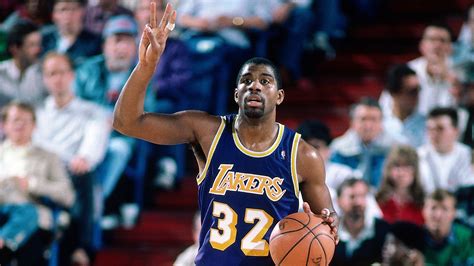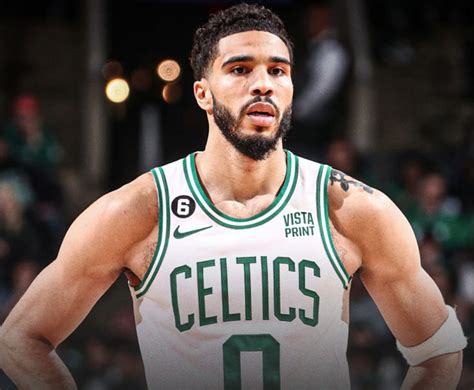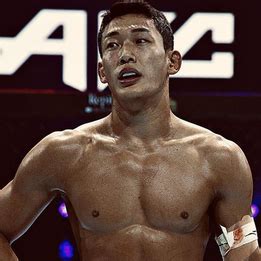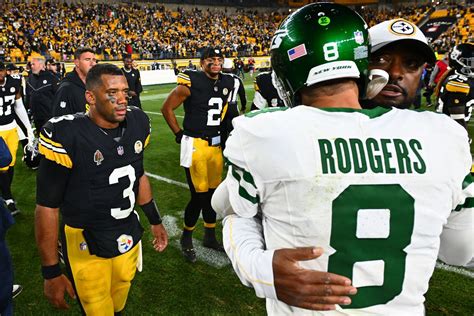
Magic Johnson, weary of the decades-long feud between Michael Jordan and Isiah Thomas, has publicly called for the basketball legends to bury the hatchet, stating, “I’m tired of it. These are my brothers… Let’s get past this.” The NBA icon expressed his desire to see the two Hall of Famers reconcile, emphasizing their immense contributions to the sport and the need to move beyond their personal differences.
Magic Johnson is imploring Michael Jordan and Isiah Thomas to end their long-standing and well-documented feud, signaling a desire for unity among basketball’s elite. Johnson, who considers both Jordan and Thomas close friends, voiced his frustration with the enduring animosity, urging them to reconcile for the sake of their legacies and the sport itself. The plea comes after years of simmering tension, fueled by on-court rivalries and off-court controversies that have divided fans and observers alike.
“I want them to get back to loving each other,” Johnson said during a recent appearance. He highlighted the importance of their relationship, noting the significant impact both players have had on basketball. Johnson’s comments underscore a growing sentiment within the basketball community that the time has come for Jordan and Thomas to put their differences aside.
The feud between Jordan and Thomas reportedly began in the late 1980s and early 1990s, intensifying during the heated rivalry between Jordan’s Chicago Bulls and Thomas’s Detroit Pistons. The Pistons, known as the “Bad Boys,” employed a highly physical and often controversial style of play, aimed at intimidating and neutralizing their opponents, including Jordan. This approach, dubbed the “Jordan Rules,” involved aggressive defense and hard fouls designed to wear down Jordan and disrupt the Bulls’ offense.
The tension escalated further following the 1992 Dream Team selection, when Thomas was controversially left off the roster. Many believe that Jordan played a significant role in Thomas’s exclusion, allegedly telling USA Basketball officials that he would not participate if Thomas was on the team. Jordan has consistently denied these allegations, but the perception that he influenced the decision has persisted for decades.
In the years since their playing careers ended, Jordan and Thomas have occasionally addressed the feud in public, but their comments have often been contradictory and have done little to resolve the underlying issues. The tension resurfaced during the airing of “The Last Dance,” a documentary series chronicling Jordan and the Bulls’ dynasty, in which Thomas was portrayed in a less-than-favorable light.
Johnson’s plea represents a significant moment in the ongoing saga, given his close relationships with both players. He is uniquely positioned to mediate between Jordan and Thomas, and his call for reconciliation could potentially pave the way for a resolution. Johnson’s influence within the basketball community is considerable, and his words carry significant weight.
“It hurt me when [Thomas] wasn’t on the Dream Team,” Johnson stated, reflecting on the controversial decision that further strained the relationship between Jordan and Thomas. He expressed hope that Jordan and Thomas would be able to move past their differences and rebuild their friendship.
The impact of this feud extends beyond the personal relationships of Jordan and Thomas. It has become a symbol of the intense rivalries and competitive spirit that defined the NBA during their era. While such rivalries are often seen as a positive aspect of sports, driving players to excel and creating memorable moments for fans, the enduring bitterness between Jordan and Thomas serves as a reminder of the potential for these rivalries to turn toxic.
Johnson’s intervention offers a glimmer of hope that the two legends can find common ground and move forward. Whether Jordan and Thomas will heed Johnson’s call remains to be seen, but his plea underscores the importance of forgiveness and reconciliation, both in sports and in life. The basketball world now awaits to see if Johnson’s words will have a lasting impact and finally bring an end to this decades-long feud.
In-Depth Analysis and Background:
The rivalry between Michael Jordan’s Chicago Bulls and Isiah Thomas’s Detroit Pistons was one of the most intense and defining rivalries in NBA history. The Pistons, under coach Chuck Daly, developed a physical and aggressive style of play designed to disrupt the Bulls’ offensive flow and intimidate Jordan. This strategy, famously known as the “Jordan Rules,” involved double-teaming Jordan as soon as he touched the ball, physically challenging him on every drive to the basket, and generally making life as difficult as possible for the young superstar.
The “Jordan Rules” were highly effective in the late 1980s, as the Pistons consistently defeated the Bulls in the playoffs, preventing them from reaching the NBA Finals. The Pistons won back-to-back championships in 1989 and 1990, cementing their status as the dominant team in the Eastern Conference. However, the Bulls, fueled by Jordan’s relentless determination and the addition of key players like Scottie Pippen and Horace Grant, eventually overcame the Pistons’ challenge.
In 1991, the Bulls finally broke through, sweeping the Pistons in the Eastern Conference Finals. The series was marked by controversy, as the Pistons, led by Thomas, walked off the court before the final buzzer sounded in Game 4, refusing to shake hands with the Bulls players. This act was widely seen as unsportsmanlike and further fueled the animosity between the two teams.
The 1992 Dream Team selection added another layer of complexity to the feud. The Dream Team, composed of the greatest basketball players in the world, was assembled to represent the United States at the Barcelona Olympics. Thomas was initially considered a lock for the roster, but he was ultimately left off the team. Rumors quickly spread that Jordan had influenced the decision, telling USA Basketball officials that he would not participate if Thomas was included.
Jordan has consistently denied these allegations, but the perception that he played a role in Thomas’s exclusion has persisted for decades. In his autobiography, “For the Love of the Game,” Jordan acknowledged that he had reservations about playing with Thomas, but he denied actively lobbying against his inclusion. However, several other Dream Team members, including Scottie Pippen and Charles Barkley, have suggested that Jordan’s influence was a factor in Thomas’s omission.
The feud between Jordan and Thomas has been a recurring topic of discussion in the basketball world for years. It has been explored in numerous books, articles, and documentaries, and it continues to fascinate fans and observers alike. The animosity between the two legends has been described as everything from a fierce rivalry to a deep-seated personal dislike.
In recent years, there have been occasional signs of a potential thaw in the relationship between Jordan and Thomas. In 2017, Jordan presented Thomas with the Lifetime Achievement Award at the NBA Awards, and the two shared a brief but cordial exchange on stage. However, the tension resurfaced during the airing of “The Last Dance,” which portrayed Thomas and the Pistons in a negative light.
Thomas has publicly expressed his disappointment with his portrayal in “The Last Dance,” arguing that it unfairly demonized him and his teammates. He has also maintained that he was unfairly excluded from the Dream Team, and he has suggested that Jordan played a role in his omission.
Johnson’s call for reconciliation represents a significant moment in the ongoing saga. As a respected figure in the basketball community and a close friend of both Jordan and Thomas, he is uniquely positioned to mediate between the two legends. His plea underscores the importance of forgiveness and reconciliation, and it offers a glimmer of hope that Jordan and Thomas can finally put their differences aside.
The legacy of the Jordan-Thomas feud extends beyond the personal relationships of the two players. It serves as a reminder of the intense rivalries and competitive spirit that defined the NBA during their era. While such rivalries can be a positive force, driving players to excel and creating memorable moments for fans, the enduring bitterness between Jordan and Thomas serves as a cautionary tale about the potential for these rivalries to turn toxic.
Johnson’s intervention offers a chance for Jordan and Thomas to set an example for future generations of basketball players. By reconciling, they could demonstrate the importance of sportsmanship, forgiveness, and mutual respect, even in the face of intense competition. The basketball world now awaits to see if Jordan and Thomas will heed Johnson’s call and finally bring an end to this decades-long feud.
Expanded Context:
The context surrounding Magic Johnson’s plea is crucial to understanding its significance. The relationship between Michael Jordan and Isiah Thomas has been fraught with tension and animosity for over three decades, rooted in intense on-court competition and perceived slights. The rivalry between the Chicago Bulls and the Detroit Pistons in the late 1980s and early 1990s laid the foundation for this animosity. The Pistons, often referred to as the “Bad Boys,” were known for their physical and aggressive style of play, specifically designed to intimidate and wear down opponents, particularly Jordan.
The “Jordan Rules,” a defensive strategy employed by the Pistons, epitomized this approach. It involved double-teaming Jordan as soon as he received the ball, disrupting his rhythm, and physically challenging him on every possession. This tactic, while effective in slowing Jordan down, was often criticized for its excessive physicality and borderline illegal plays. The Bulls, under Jordan’s leadership, eventually overcame this challenge, but the battles left lasting scars.
The exclusion of Isiah Thomas from the 1992 Dream Team further exacerbated the situation. The Dream Team, considered the greatest basketball team ever assembled, was set to represent the United States at the Barcelona Olympics. While Jordan has consistently denied having a direct role, many believe that he influenced the decision to leave Thomas off the roster. The perception that Jordan wielded his influence to keep Thomas off the team has fueled resentment and contributed to the ongoing feud.
Moreover, the airing of “The Last Dance,” a documentary series chronicling Jordan’s career and the Bulls’ dynasty, reignited the controversy. The documentary portrayed Thomas and the Pistons in a negative light, reinforcing the perception that they were overly aggressive and unsportsmanlike. Thomas has publicly criticized the documentary, arguing that it unfairly demonized him and his teammates.
Magic Johnson’s intervention is significant because he is a respected figure in the basketball community and a close friend of both Jordan and Thomas. He is uniquely positioned to mediate between the two legends and potentially facilitate a reconciliation. Johnson’s plea reflects a growing sentiment within the basketball community that the time has come for Jordan and Thomas to put their differences aside and move forward.
The feud between Jordan and Thomas has implications beyond their personal relationships. It serves as a reminder of the intense rivalries and competitive spirit that defined the NBA during their era. While rivalries can be a positive force, driving players to excel and creating memorable moments for fans, the enduring bitterness between Jordan and Thomas highlights the potential for these rivalries to turn toxic.
Johnson’s call for reconciliation offers an opportunity for Jordan and Thomas to set a positive example for future generations of basketball players. By reconciling, they could demonstrate the importance of sportsmanship, forgiveness, and mutual respect, even in the face of intense competition. The basketball world now awaits to see if Jordan and Thomas will heed Johnson’s call and finally bring an end to this decades-long feud.
More Details
Magic Johnson’s plea for a truce between Michael Jordan and Isiah Thomas isn’t just a casual remark; it’s a calculated appeal stemming from a deep understanding of the dynamics between these two basketball titans and the broader implications of their unresolved conflict. Johnson, having shared the court with both legends, recognizes the weight their feud carries within the basketball community and beyond.
The animosity isn’t merely about on-court competitiveness; it’s a complex web of perceived disrespect, personal slights, and differing philosophies about the game. The “Jordan Rules,” while a strategic approach to neutralizing a dominant player, were often interpreted as malicious and aimed at physically harming Jordan. This perception, coupled with the Pistons’ unapologetic “Bad Boys” image, created a narrative of villainy that Thomas has struggled to shake off.
The Dream Team snub remains a particularly sensitive point. Thomas’s absence from the roster, despite his undeniable talent and accomplishments, fueled speculation that Jordan had intervened to keep him off the team. This accusation, whether true or not, has become a defining element of their feud, casting a shadow over their respective legacies.
“The Last Dance” documentary only served to intensify the situation. While the documentary provided valuable insights into Jordan’s relentless drive and the Bulls’ journey to dominance, it also reinforced negative stereotypes about Thomas and the Pistons. Thomas’s subsequent public responses revealed his frustration and disappointment, highlighting the enduring pain caused by the perceived unfairness of the narrative.
Johnson’s intervention is significant because he transcends the boundaries of team rivalries and personal biases. He’s respected by both Jordan and Thomas and is seen as a neutral voice within the basketball community. His call for reconciliation carries weight because it’s not just about mending fences; it’s about setting an example for future generations of athletes.
The ongoing feud distracts from the accomplishments of both Jordan and Thomas. It allows negativity and resentment to overshadow their contributions to the sport and their impact on countless fans. By reconciling, they could reclaim their narratives and focus on their positive legacies.
Moreover, a truce between Jordan and Thomas could have a ripple effect throughout the basketball world. It could encourage other athletes to resolve their differences and promote a spirit of sportsmanship and mutual respect. It could also serve as a reminder that even the fiercest competitors can find common ground and move forward.
Ultimately, the decision to reconcile rests with Jordan and Thomas. However, Johnson’s plea provides a powerful impetus for them to reconsider their stance and explore the possibility of forgiveness. The basketball world now awaits their response, hoping that they will heed Johnson’s call and finally put an end to this decades-long feud.
Financial Implications
While the feud between Jordan and Thomas is largely a personal and legacy-driven issue, it’s impossible to ignore the potential financial implications, albeit indirect. Both Jordan and Thomas are hugely successful entrepreneurs and brand ambassadors, and their public image plays a significant role in their financial endeavors.
For Jordan, the brand “Jordan” under Nike is a multi-billion dollar enterprise. Any perception of negativity, even stemming from a decades-old feud, can potentially impact brand perception and sales, albeit marginally. While highly unlikely to cause a significant dip, maintaining a positive and unifying image is always beneficial for brand longevity.
Similarly, Isiah Thomas has various business ventures and broadcasting roles. While his brand isn’t as globally recognized as Jordan’s, maintaining a positive public image is crucial for securing endorsements and business opportunities. The perception of being involved in a long-standing feud can be a deterrent for companies seeking brand ambassadors.
Furthermore, the NBA itself has a vested interest in resolving this feud. The league thrives on positive narratives and celebrating its legends. A reconciliation between Jordan and Thomas would be a major PR win for the NBA, generating positive media coverage and potentially attracting new fans.
While quantifying the exact financial impact is difficult, it’s clear that a resolution to the feud would be beneficial for all parties involved, both financially and in terms of legacy. A unified front among basketball legends enhances the overall image of the sport and creates a more positive environment for business and brand growth.
Future Impact
The potential impact of a resolution to the Jordan-Thomas feud extends beyond personal reconciliation and financial considerations. It has the power to influence the culture of basketball and shape the narratives surrounding sportsmanship and conflict resolution.
A truce between these two legends would send a powerful message to current and future generations of athletes: that even the fiercest competitors can find common ground and move past their differences. It would demonstrate the importance of forgiveness, empathy, and mutual respect, even in the heat of competition.
Furthermore, a resolution could help to de-escalate the toxic rivalries that sometimes plague professional sports. By showcasing the possibility of reconciliation, Jordan and Thomas could inspire other athletes to address their conflicts constructively and prioritize sportsmanship over personal animosity.
The impact could also be felt in the realm of sports media. A unified front among basketball legends would encourage more balanced and nuanced coverage of rivalries, focusing on the positive aspects of competition and minimizing the emphasis on negativity and conflict.
Ultimately, a resolution to the Jordan-Thomas feud would be a significant cultural moment, demonstrating the power of forgiveness and the importance of unity within the basketball community. It would serve as a reminder that even the most enduring rivalries can be overcome, and that the legacy of sports should be defined by positive values and mutual respect.
Frequently Asked Questions (FAQ):
-
What sparked the feud between Michael Jordan and Isiah Thomas?
The feud reportedly began in the late 1980s and early 1990s during the intense rivalry between Jordan’s Chicago Bulls and Thomas’s Detroit Pistons. The Pistons, known as the “Bad Boys,” employed a physical and aggressive style of play, including the “Jordan Rules,” aimed at intimidating and neutralizing Jordan. Additionally, Thomas’s exclusion from the 1992 Dream Team, with many believing Jordan influenced the decision, further exacerbated the situation.
-
What are the “Jordan Rules”?
The “Jordan Rules” were a defensive strategy employed by the Detroit Pistons against Michael Jordan. It involved double-teaming him as soon as he touched the ball, physically challenging him on every drive to the basket, and generally making life as difficult as possible for the young superstar. The strategy was designed to wear down Jordan and disrupt the Bulls’ offense.
-
What role did the 1992 Dream Team selection play in the feud?
Isiah Thomas was controversially left off the roster of the 1992 Dream Team. Many believe that Michael Jordan played a significant role in Thomas’s exclusion, allegedly telling USA Basketball officials that he would not participate if Thomas was on the team. Jordan has denied these allegations, but the perception has persisted for decades.
-
Why is Magic Johnson getting involved now?
Magic Johnson is a close friend of both Michael Jordan and Isiah Thomas and is a highly respected figure in the basketball community. He is uniquely positioned to mediate between the two legends. Johnson stated he is “tired of it” and wants to see his “brothers” reconcile, emphasizing their immense contributions to the sport and the need to move beyond their personal differences.
-
What is the likelihood that Jordan and Thomas will actually reconcile?
It is difficult to say definitively whether Jordan and Thomas will reconcile. While Magic Johnson’s plea represents a significant moment and offers a glimmer of hope, the decision ultimately rests with Jordan and Thomas. Their past comments and actions suggest deep-seated animosity, but Johnson’s influence and the growing sentiment within the basketball community could potentially pave the way for a resolution.









